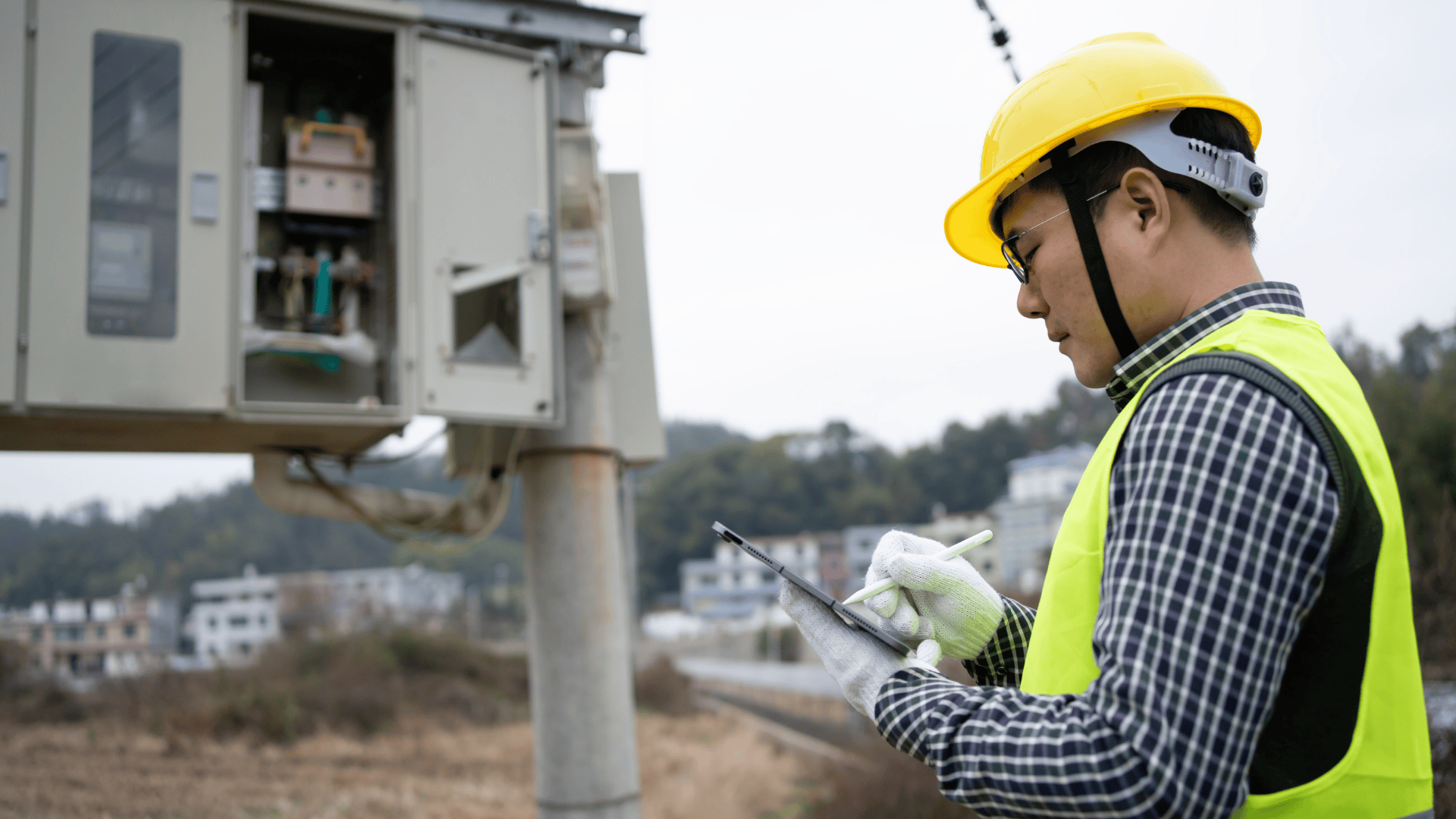"Got 99 problems, and 'loose screws' are definitely one of them." - Walter “The Wrench” White.
In construction, even small missteps early on can lead to significant problems later: missed deadlines, confused clients, or projects going considerably off-budget. That’s why clear planning, communication, and precision are not just nice to have; they lay the foundation from the start.
This principle applies not only to blueprints and building materials but also to business management. However, issues often arise when construction companies adopt customer relationship management (CRM) solutions that fail to communicate in the contractors' language.
So, let's lay the foundation for the basic capabilities needed to help your business foster stronger client relationships, secure more bids, and manage projects, all with just one tool: Construction CRM.
Key Takeaways
- Common challenges contractors face: Long sales cycles, complex bidding processes, and managing multiple stakeholders.
- 7 must-have features in Construction CRM: Project management, client management, bid and estimate management, role-based permissions, mobile accessibility, integration with existing tools, and analytics.
- Actionable Checklist for choosing the right CRM: Ask, Test, Verify.
- Constructionbase CRM stands out as the top CRM, facilitating smoother and more profitable operations.
Understanding the Construction Industry

> Chaos Of Manual Workflows: Common Challenges In The Construction Industry
1. Long sales cycles
The construction business always involves prolonged sales cycles that test patience.
"Hurry up and wait" could well serve as the unofficial tagline of construction sales.
In contrast to retail transactions that occur in minutes, construction deals typically progress over months, or even years.
2. Complex bidding processes
Construction bidding isn't merely about offering the lowest price; it's a strategic game where precision intertwines with psychology.
Each bid necessitates balancing competitive pricing with profit margins while showcasing value beyond just the bottom line.
A single miscalculation on material quantities, an oversight on labor hours, or a misunderstanding of scope can turn your profitable project into a financial burden.
3. Managing multiple stakeholders
Each stakeholder speaks a different language, has different priorities, and needs different types of communication.
Coordinating this human-complex interaction without advanced systems often leads to misunderstandings, delays, and the inevitable game of "who said what and when?"
The only solution you need? Construction Customer Relationship Management Software!
> Why Do Construction Companies Need a Construction-Specific CRM?
First things first, as a contractor, you're simultaneously managing relationships with:
- Clients with changing concepts
- Architects with aesthetic priorities
- Engineers with technical conditions
- Subcontractors with their own busy schedules
- Suppliers with fluctuating prices and availability
- Inspectors with regulatory checklists
To cut the fluff: Endless people with reasonable crises!
A "Generic CRM" is handy for many tasks, but not optimized for any particular industry. On the other hand, "Construction CRM Software" recognizes that your customer journey includes RFPs, site visits, engineering, change orders, and punch lists, unlike the typical process.
Moreover, an industry-specific platform connects with estimating software, project management tools, and accounting systems to form a cohesive ecosystem, ensuring easy information exchange between departments.
> Statistical Highlight

FMI estimates that poor communication costs the U.S. construction industry approximately $17 billion a year, while poor project data adds another $14.3 billion, resulting in a total potential cost of $31.3 billion annually. (Source)
Well, that’s enough to secure many upcoming projects out there!
Explore the Hidden Advantages of CRM in the Construction Sector.
Checklist: What are the 7 Must-Have Features in Construction CRM Systems?

1. Project Management and Scheduling Tools
A good construction CRM doesn't just let you create appealing Gantt charts; it also helps you navigate the unavoidable chaos.
Look for a CRM that provides:
- Dynamic scheduling that automatically modifies pending tasks in response to delays.
- Resource allocation that prevents double-booking crews and equipment
- Automated notifications and deadline reminders ensure that each brick is set ahead of schedule.
Tired of spending hours each Monday morning reworking your schedule? That ends now!
2. Client Management-at-Scale
Construction isn't just transactional labor; it's fundamentally relational. A typical client relationship may extend over several months or even years, including numerous meetings, countless decisions, and vast communications.
You require a CRM capable of managing clients on a large scale. So that you can:
- Keep detailed client profiles with past interactions, preferences, and project histories.
- Automate follow-ups to nurture leads effortlessly.
- Maintain communication logs to ensure no detail is overlooked.
3. Bid & Estimate Management
Your estimating process can determine the success or failure of your business. If you bid too high, you may not secure enough projects; if you bid too low, you risk winning unprofitable ones.
The best construction CRMs include:
- Templates for various project types to maintain consistency.
- Centralized storehouse for bids, estimates, and proposals.
- Keep track of accepted, rejected, or pending bids.
- Real-time collaboration with stakeholders during bid preparation.
In construction, material waste and remedial work account for 35% of expenses. Tracking the cost of each screw can determine if a project stays on budget or leads organizations to bankruptcy. (Forbes)
4. Role-based permissions and Collaboration
Construction involves multiple teams with different information needs. Your manager requires access to different data compared to your accountant or business development manager.
How does construction CRM software help here?
- Assigning tasks and monitoring accountability.
- Notification systems that notify only the relevant team members.
- Collaboration tools that reduce the need for endless email chains.
- Document control that ensures everyone uses the most recent versions.
Not all team members need access to everything. For example, your field crew doesn’t require access to financial reports, and your finance team shouldn’t handle scheduling.
5. Mobile Accessibility
Construction takes place in the field, not in the office. If your CRM is not fully functional on mobile devices, it is basically useless for half of your team.
What to expect?
- Capture photos and documents directly from mobile devices.
- User-friendly interfaces created for all, including those who aren't tech-savvy.
- Urgent updates via push notifications.
Key point: The offline feature is a huge advantage, particularly in locations with unreliable Wi-Fi or cellular service.
6. Integration with Existing Tools
Construction companies often utilize various software platforms. If your CRM is unwilling to collaborate, you are generating data silos and duplicate work. It's no different than manual work!
Seamless integration:
- Minimizes double-entry.
- Keeps your data consistent.
- Saves your team several hours each week.
Who wouldn’t want extra time or to leave work on time?
7. Analytics & Custom Reporting
The truth: When you know you've got the right numbers on your reports, half of your work is already reduced.
What advantages does it offer?
- Visual dashboards displaying KPIs at a glance.
- Sales performance metrics to identify trends.
- Financial forecasting tools to confidently plan for the future
- Lead-to-win job conversion rates and sales pipeline visualization.
This isn’t only about appearing smart in meetings. It’s about identifying trends, making wiser decisions, and confidently growing your business.
So, take this checklist with you as you shop around and find the CRM that checks all these boxes.
Take a look at the 7 Tools for Efficient Project Management in Construction.
How do you know- Which Construction CRM is the one?
Here comes the tricky part: going through numerous options to discover "the one" that will genuinely transform your daily operations rather than add another subscription to your monthly expenditures.
> Actionable Checklist: ASK+ TEST+ VERIFY

1. ASK the Tough Questions.
Before diving into demos or trials, start by asking yourself (and your team):
- What specific problems are we trying to solve? (Example: Consider lengthy sales cycles, disorganized communication, or chaotic bids.)
- Does this CRM address challenges specific to construction? Can it manage bids or track clients at scale?
- What improvements are coming? Will it grow alongside us as the business expands?
Top CRMs appreciate these inquiries and offer specific answers rather than vague reassurances. If they evade questions or give generic replies, consider it a warning sign.
2. TEST in Actual Conditions
Seeing is considering. Now most CRMs provide free trials or demos, so use them!
- Test usability: Is the interface intuitive, or does it feel like you are just lost?
- Check features: Do the tools function as you require them to? For instance, can you effortlessly generate estimates or assign tasks?
- Involve your team: Gather feedback from those who will use it daily. If they dislike it, you may regret it later.
Pro tip: Test mobile functionality under real-world conditions and assess offline capabilities in areas with limited connectivity.
3. VERIFY Compatibility
A good CRM should fit your toolbox and still have room for future upgrades.
- Integration check: Is it perfectly compatible with the software you currently use?
- Data migration: Can you import your existing data without losing anything important?
- Scalability test: Can it handle the workload when you take double projects or triple your team size?
Also, inquire about support availability, response times, and whether you'll have a specific contact or only a general help desk.
At the end of the day, the best CRM for construction is the one that solves your problems, fits your budget, and makes the sales process easier for your team.
Here's how you can Transform Your Business: Save Time and Costs with Construction Software.
Introducing Constructionbase CRM: Built for the Construction Industry
Generic CRMs may eventually accomplish the task, but not without frustration, wasted time, and inferior results. Between managing clients, juggling projects, and chasing leads, something always demands your attention. What if you had a tool that could make everything simpler?
Introducing Constructionbase CRM, constructed to tackle unique challenges in the construction industry. Here's why it's essential for you:
- Manage Client Relationships: Store all client interactions, preferences, and project histories in one place. This means happier clients, stronger relationships, and repeat business.
- Close Deals Before Anyone Else: The construction sales cycle is known for being lengthy. Now, you can automate proposals, approvals, and follow-ups to minimize delays and boost sales.
- Improved Project Oversight: It provides real-time dashboards to prevent surprises in construction projects, showcasing budget trends, delays, resource conflicts, and performance problems.
- Better Team Efficiency: Forget paperwork or spreadsheets. Constructionbase streamlines internal communication and automates tedious tasks that exhaust your team.
- Scalable and Adjustable: Handle any number of projects with Constructionbase. You can tailor features and workflows to fit your business size and requirements.
- Mobile-Friendly: Experience reliable mobile access in any location. Stay connected and run your business on the go.
So, why choose generic solutions when you can have a CRM designed for construction by industry experts?
Laying the Final Brick
Most of today's biggest challenges lie not in the job site but within our workflows, communication, and data management.
While tools have evolved, the mindset remains unchanged: There's a need to recognize the issue, discover the appropriate solution, and create something superior to what previously existed.
Selecting the right CRM platform from the beginning lays a digital groundwork that fosters your growth for years to come. On the other hand, relying on generic CRMs and manual workflows can unravel your operations, wasting months and money on a system that was never the right fit.
Construct Your Future with Constructionbase.AI
Constructionbase CRM: Timely builds, nurtures, and automates everything! Ready to take a tour of how Constructionbase.AI can revolutionize your construction business?
Schedule a personalized demo today and see the impact that software designed specifically for construction can have.
FAQ's
1. Why do commercial construction companies need CRM systems?
CRM systems are essential for commercial construction companies since they effectively organize and manage customer relationships. In addition to client interactions, they simplify complex workflows, track job progress, help with financial management, and centralize lead management, ensuring that no opportunity is overlooked.
2. How do construction CRM systems improve customer management?
CRM systems gather and unify all customer information, simplifying the tracking of communication history, preferences, and project requirements. With this capability, construction companies can streamline processes, provide personalized experiences, and foster stronger client relationships.
3. Is Constructionbase construction CRM customizable for unique business needs?
Yes! Constructionbase construction CRMs offer customization to suit the company's specific demands. It is tailored to adapt alongside the company, whether through streamlining processes, job progress tracking, or customizing the platform for builders.
Have questions or need personalized advice?
Talk to an Expert Today and let our construction specialists guide you to success.




